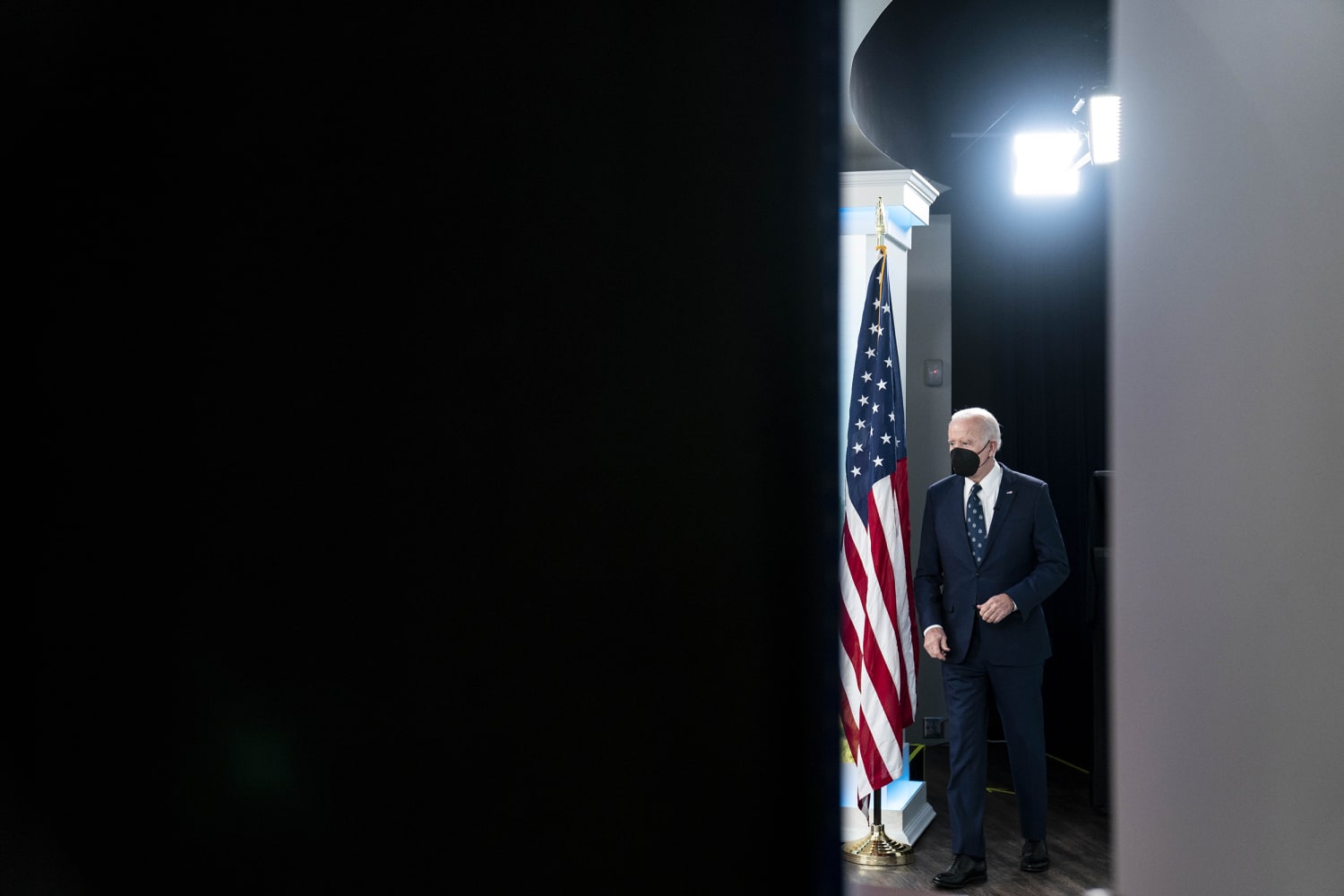The White House is crafting a plan to refocus President Joe Biden’s economic message so that in next month’s State of the Union address he emphasizes more of what officials view as his best political asset and weapon against Americans’ angst: empathy.
The still-evolving plan, according to administration officials, is for Biden to stress that he understands the economic pain many Americans are experiencing, particularly because of inflation, in an attempt to balance out his recent efforts to get credit for policy prescriptions the White House believes have been successes.
The shift reflects a recognition by Biden and his aides that Americans aren’t in the mood to reward him for his signature achievements, such as the bipartisan infrastructure law, if they aren’t convinced he understands their day-to-day struggles, officials said.
“People are not going to hear the litany of accomplishments if they don’t believe that he understands that they feel the squeeze of inflation and they feel the squeeze of rising gas prices and they just feel this overall uncertainty and anxiety … because of Covid,” a senior administration official said.
The official added that “for people to hear the argument about accomplishments,” Biden has “to make clear that he understands that prices are too high and he’s working on bringing them down.”
White House aides are also weighing different formats for Biden’s events so they better highlight his ability to make a personal connection with people, officials said.
Democrats are crafting a new economic message as they grapple with how to position themselves in November’s midterm elections, in which rising consumer prices and the persistent pandemic remain the biggest anchors to their political fortunes. The White House sees the State of the Union address March 1 as a critical opportunity to showcase Biden’s empathy, as well as set the tone for his party just as the first votes of the midterm election cycle are being cast.
Biden’s trip to Ohio on Thursday is a platform for him to road-test some of the themes emerging in early drafts of the prime-time address. And after his speech to Congress next month, officials said, he will pick up the pace of traveling outside Washington, as will Vice President Kamala Harris and an array of Cabinet officials. Some of the events Biden headlines will have different looks rom those he’s done so far, officials said.
“We’re always thinking through what events can look like that would give him the opportunity to talk to people directly,” the senior administration official said.
Indeed, while Biden’s search for a Supreme Court nominee and the crisis in Ukraine have dominated his time and attention in recent weeks, preparation for his first State of the Union address has been “heavily underway,” as well, as one official put it. Biden’s top strategist, Mike Donilon, spent last weekend with him at the presidential retreat at Camp David, Maryland, working on the latest draft.
It’s not that Biden won’t still tout his policy accomplishments, officials said, but that the victory lap will be tempered by his increasing acknowledgment that many people don’t feel they are seeing the results. In some ways, it’s an expansion on a political axiom Biden has often said he heard from his father: Americans don’t expect government to solve all their problems, but they do want their leaders to understand them.
Outside the White House, Biden’s allies are ramping up efforts to amplify his economic message. Building Back Together, the pro-Biden nonprofit advocacy group, has spent more than $25 million on paid advertising — focused mainly on the economy.
“While there’s more work to do to keep wages up and drive prices down, the president has been laser-focused on delivering for working- and middle-class families,” Executive Director Danielle Melfi said.
Biden advisers have long felt that empathy was one of his greatest political strengths. But when inflation first emerged as a major issue last year, Biden and his team were quick to downplay it, calling it “transitory” and attributing it to short-term consequences of supply chain challenges and pandemic-related disruptions.
Americans now say inflation is their top concern, according to a poll released Wednesday by Quinnipiac University. Asked to choose the most pressing issue facing the country, 27 percent of respondents said inflation, followed by immigration, at 12 percent, and the coronavirus pandemic, at 10 percent.
The White House has recently acknowledged that higher prices are likely to remain a challenge through the rest of 2022. And Biden has begun putting a personal touch on his discussion of it.
Speaking in a Virginia swing district last week in front of banners reading “Lowering Costs for Families,” Biden pitched legislation that would lower prescription drug prices but acknowledged other financial stresses.
“I know food prices are up, and we’re working to bring them down,” he said. ‘I grew up in a family where the price at the pump went up, you felt it. And I understand.”
Officials were reluctant to say what, if any, new initiatives Biden will lay out on March 1, saying the policymaking process is still active. One challenge, however, will be how to discuss his Build Back Better legislation, which most Democrats acknowledge is all but dead.
Another major variable is Covid-19, as officials await a review of masking and other guidance from the Centers for Disease Control and Prevention before the end of the month. After having delivered weekly remarks about the pandemic for most of his first year in office, Biden hasn’t addressed the coronavirus directly in weeks. But officials cited recent remarks from his Covid team in pointing to a coming shift.
“We all share the same goal: to get to a point where Covid-19 is no longer disrupting our daily lives, a time when it won’t be a constant crisis, rather something we can prevent, protect against and treat,” Jeff Zients, the White House coronavirus response coordinator, said Wednesday.
Source: | This article originally belongs to Nbcnews.com











